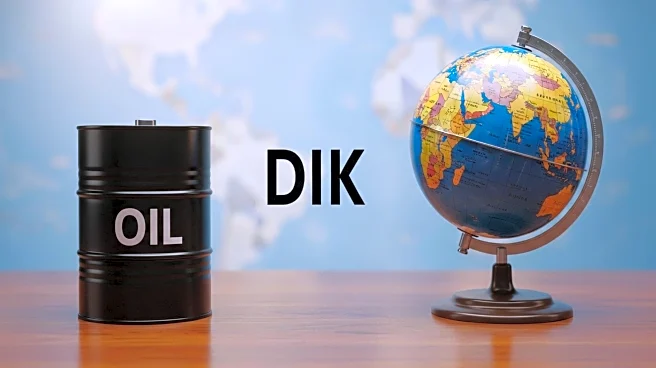What's Happening?
White House trade adviser Peter Navarro has intensified pressure on India to cease its purchases of Russian oil, accusing New Delhi of financially supporting the Kremlin's military actions in Ukraine. Navarro labeled the conflict as 'Modi's war,' suggesting that Indian Prime Minister Narendra Modi is indirectly funding Russia's war efforts. This statement follows the Trump administration's decision to double tariffs on India to 50%, aiming to secure trade concessions and exert pressure on Russia. Navarro's comments reflect ongoing tensions between the U.S. and India regarding geopolitical alignments and economic policies.
Why It's Important?
The criticism from Navarro highlights the complex geopolitical dynamics involving major global powers. India's continued purchase of Russian oil has implications for U.S.-India relations, potentially affecting trade negotiations and diplomatic ties. The increased tariffs could strain economic relations, impacting industries reliant on bilateral trade. Additionally, the U.S. stance may influence other countries' policies towards Russia, affecting global energy markets and diplomatic strategies. The situation underscores the broader impact of the Ukraine conflict on international alliances and economic policies.
What's Next?
The U.S. may continue to apply diplomatic and economic pressure on India to alter its stance on Russian oil purchases. This could involve further tariff adjustments or negotiations aimed at aligning India's policies with U.S. interests. India, on the other hand, may seek to balance its energy needs with diplomatic relations, potentially exploring alternative energy sources or negotiating terms with the U.S. The evolving situation will likely influence future trade agreements and geopolitical strategies between the involved nations.









